Wednesday, 30 April 2025
Nine ICN2 Projects Selected for Severo Ochoa Seed Funding in 2025
These awarded projects have a clear and emerging research perspective and are expected to significantly impact society in the future.
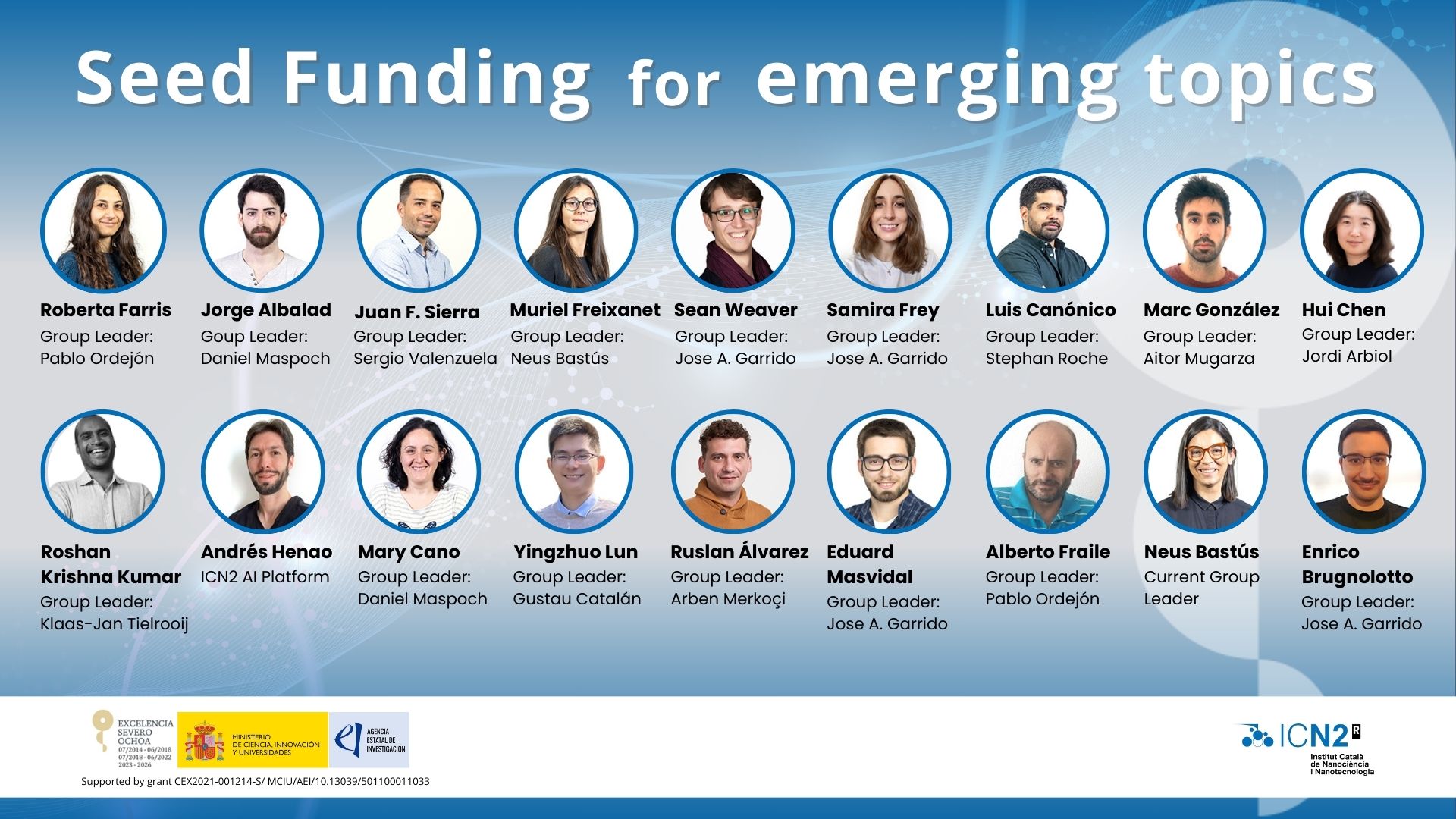

Wednesday, 30 April 2025
These awarded projects have a clear and emerging research perspective and are expected to significantly impact society in the future.

Friday, 06 September 2024
The event, which was presided over by Diana Morant, Minister of Science, Innovation, and Universities, honoured the most distinguished scientific centres and units in Spain.
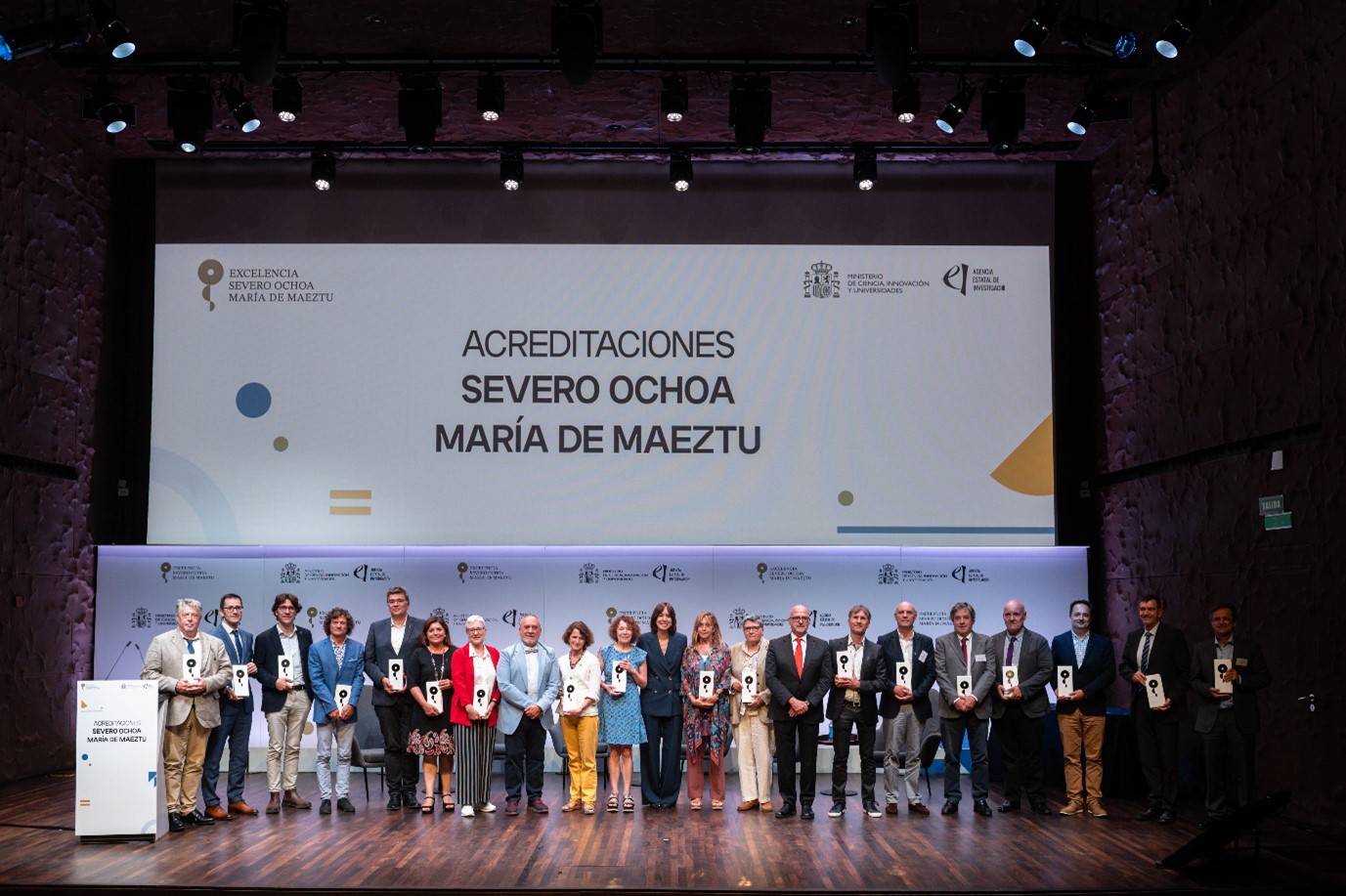
Thursday, 23 May 2024
The 12-month projects, characterised by a clear and emerging research direction, are expected to impact future society significantly.

Monday, 30 October 2023
A study led by researchers at the ICN2 and published in ‘ACS Applied Materials & Interfaces’ demonstrates that carbon nanotube networks can be used to provide efficient heat dissipation in applications such as extreme ultraviolet lithography, as well as flexible electronics and interconnects in integrated circuits.

Friday, 20 October 2023
A study published in ‘Nature Communications’ and carried out by researchers from the Polytechnic University of Catalonia (UPC) and the Catalan Institute of Nanoscience and Nanotechnology (ICN2) unveils a photocatalyst that enhance the production of hydrogen through chemical reactions activated by light. The authors synthesised this stable photocatalyst using platinum nanoparticles deposited on titanium dioxide.

Tuesday, 12 September 2023
A team of scientists, including current and former members of the ICN2 Novel Energy-Oriented Materials Group, has developed an innovative triple hybrid material that significantly improves the efficiency of energy storage devices. Their approach, explained in an article published in Nanomaterials, is to combine three components exhibiting different properties to create a highly effective electrode.

Thursday, 06 July 2023
This Award was conferred to Prof. Escudero Escribano in recognition of her outstanding contribution to materials chemistry.

Friday, 23 June 2023
Three researchers from the ICN2 presented their projects in this meeting dedicated to industrial research and technology transfer in the field of green energy and sustainability.
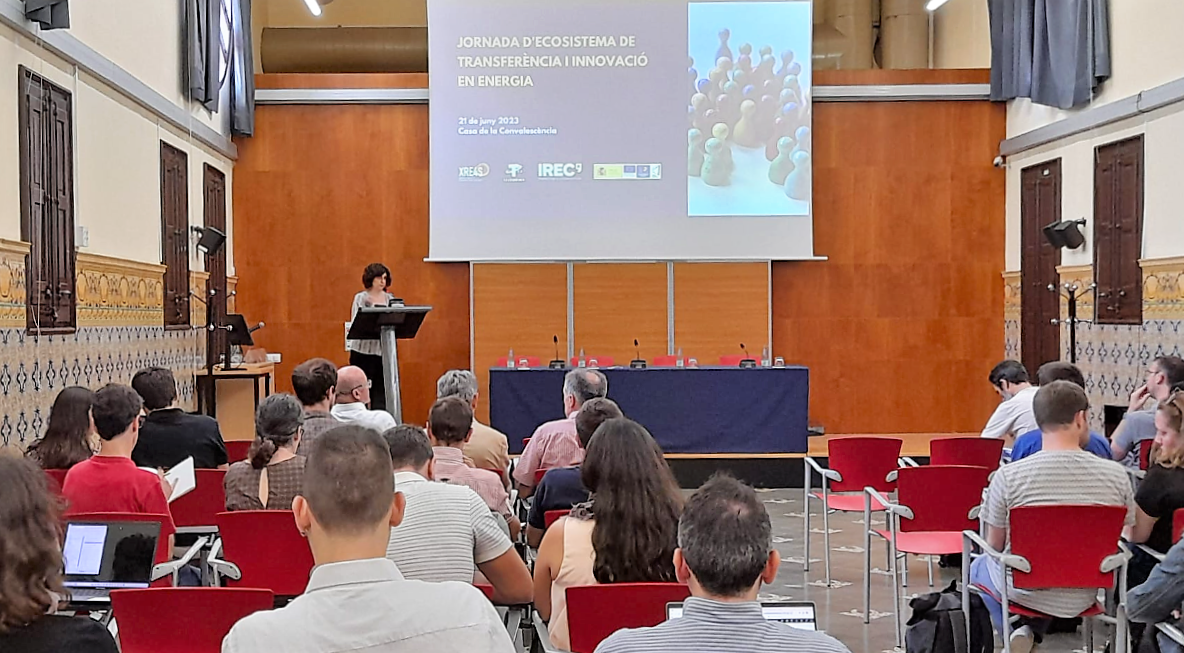
Thursday, 02 March 2023
ICN2 is collaborating with the companies Sorigué and Cales de Pachs to develop a material, to be adhered to different surfaces, that can capture CO2. The tests of this technology, developed and patented at the ICN2 in the framework of the LightNET project, are being carried out at Sorigué's La plana del Corb industrial complex.
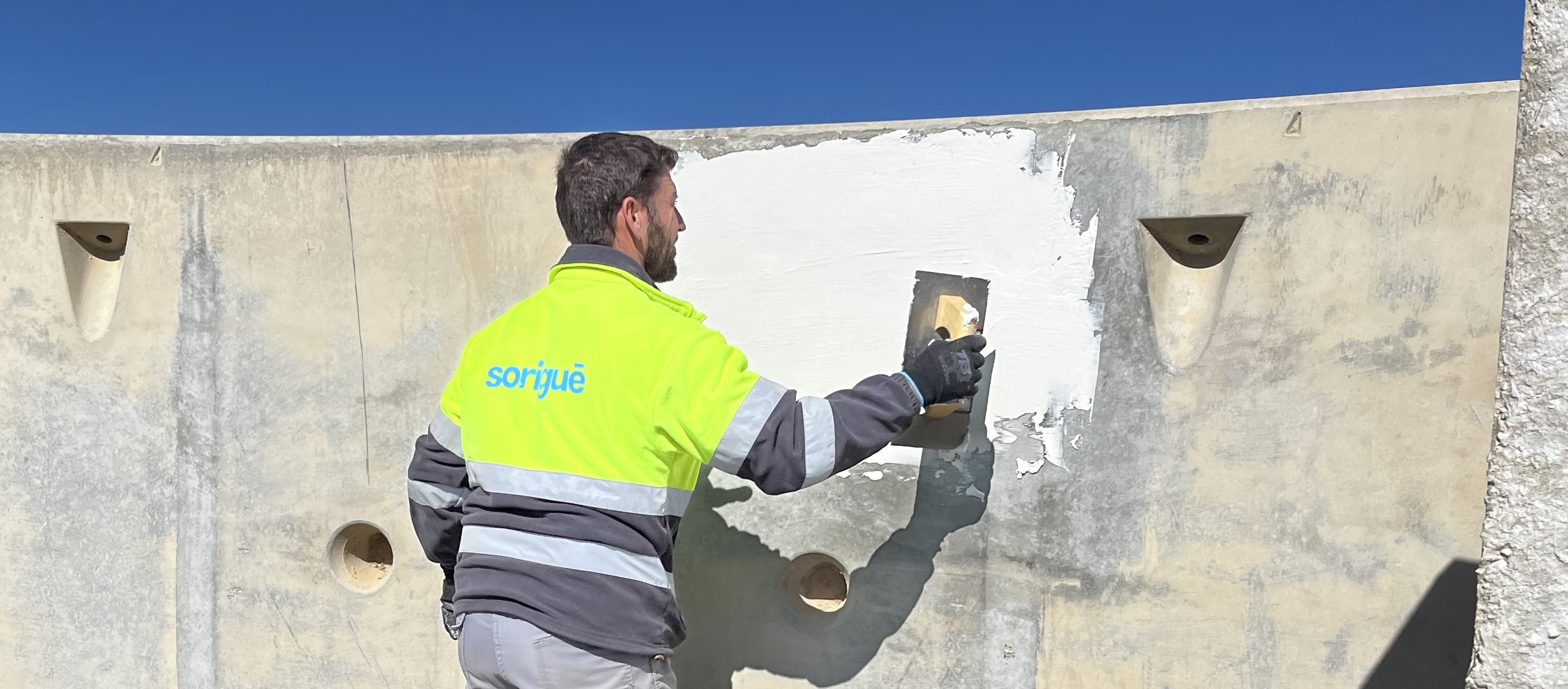
Wednesday, 01 March 2023
ICN2 showcases four of its most promising spin-off companies at the 4YFN (4 Years From Now) event held in Barcelona during MWC23. InBrain Neuroelectronics, Napptilus Battery Labs, Paperdrop Diagnostics, and Cooling Photonics presented their cutting-edge technologies and business models to potential investors and collaborators.
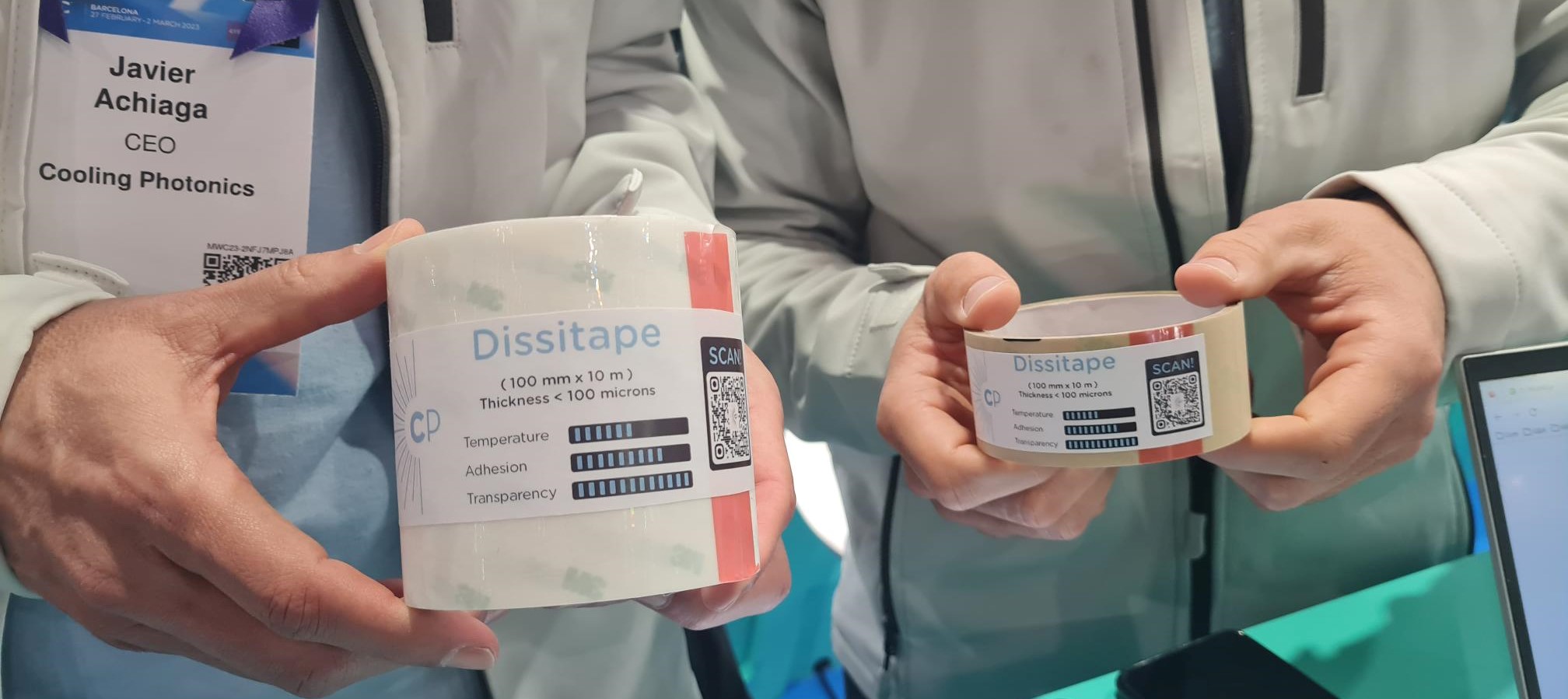
Thursday, 09 February 2023
The thermal dissipation in new ultra-thin materials is extremely relevant for heat management of future electronic devices. A combination of characterization techniques allows studying how this and other properties vary as a consequence of increased thickness and change of crystallinity of the material.

Monday, 23 January 2023
Cooling Photonics has raised 630,000 euros of investment that will accelerate the entry into the market of its cooling technology, aimed at the energy, electrical charging, and aerospace sectors. The company has received support from ACCIÓ through the Startup Capital line, aimed at boosting the growth of emerging companies with high technological potential.

Wednesday, 11 January 2023
The R+D+I Energy for Society Network (XRE4S) provides consultancy and mentoring in industrial strategy, property protection, and market positioning to researchers who are interested in transferring their technologies to an existing company or founding a new one. Five spin-offs have been recently created with the support of XRE4S and one more (from the ICN2) may be established soon.

Thursday, 15 December 2022
The SMART-ER project has been granted funding by the Spanish Research Agency to produce photoresponsive materials based on a conceptually new paradigm. It will be led by the ICN2 Nanostructured Functional Materials Group (Nanosfun).

Monday, 05 December 2022
'Científicas e Innovadoras' is a display and search engine for excellent female talent in Spain.

Monday, 17 October 2022
In a paper published in ‘JACS’, an alternative method to synthesize complex metal-organic framework (MOFs), by assembling prefabricated “pores”, is proposed. The approach envisioned by a team of researchers from the ICN2 Supramolecular NanoChemistry and Materials Group provides greater control over the materials produced and their specific properties.

Tuesday, 27 September 2022
Dr Amador Pérez-Tomas, senior postdoctoral researcher at the ICN2, presented LighNET in an online event organised by XRE4S, XIA and BlueNetCat.

Tuesday, 27 September 2022
Two studies led by members of the ICN2 Novel Energy-Oriented Materials Group, recently published in specialised journals, explore two parallel strategies for the development of a hybrid material –based on MXene and polyoxometalates— for the electrodes of supercapacitors, which results in improved energy storage performance.

Thursday, 15 September 2022
The new open access journal 'APL Energy' is now open for submissions and will start publishing in 2023.

Thursday, 08 September 2022
Aimed at the development of an innovative and scalable technology for solar energy conversion, SOLARUP will be coordinated by the ICN2, with ICREA Prof. Jordi Arbiol at the leadership.
